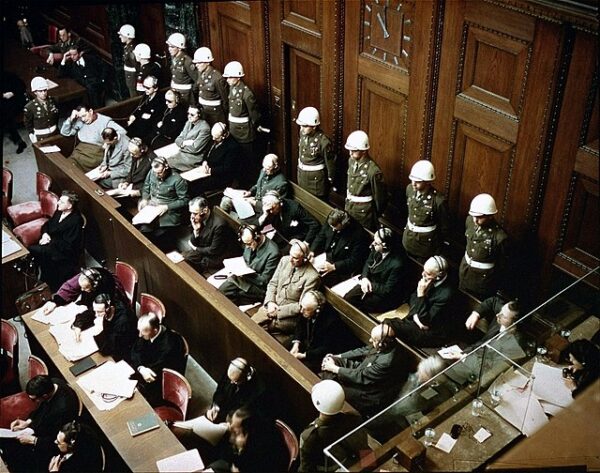On October 16, 1946, ten senior Nazi officials, convicted by the International Military Tribunal at Nuremberg, were executed by hanging. These executions marked the culmination of the Nuremberg Trials, which ran from November 1945 to October 1946 and aimed to hold leading figures of the Nazi regime accountable for war crimes, crimes against humanity, and other atrocities committed during World War II. These trials were a pivotal moment in international law, setting important precedents for the prosecution of war criminals.
Among those executed was Joachim von Ribbentrop, Hitler’s foreign minister, who played a central role in establishing alliances that fueled the outbreak of war. His conviction stemmed from his involvement in planning and waging aggressive war, his contribution to Nazi racial policies, and his role in negotiating the Molotov-Ribbentrop Pact, which facilitated the invasion of Poland.
Wilhelm Keitel, the head of the German High Command, was another significant figure. He was convicted for his role in carrying out Hitler’s orders, overseeing the harsh treatment of prisoners of war, and endorsing policies that led to the deaths of millions of civilians, particularly in Eastern Europe.
Ernst Kaltenbrunner, a high-ranking SS official, was executed for his leadership of the Gestapo and his involvement in the concentration camp system. His direct participation in the Holocaust and in the violent suppression of resistance movements placed him among those most responsible for Nazi atrocities.
Alfred Jodl, a key military leader, was found guilty of signing orders that led to the execution of captured Allied soldiers and civilians. Alongside Keitel, Jodl was instrumental in developing Nazi Germany’s military strategies, including operations that caused widespread devastation and loss of life.
Hans Frank, the Governor-General of Nazi-occupied Poland, was executed for overseeing the systematic extermination of Polish Jews and the exploitation of the Polish population. Under his administration, the implementation of the Holocaust in Poland, including the operation of death camps like Auschwitz, was carried out with brutal efficiency.
Arthur Seyss-Inquart, who served as Reich Commissioner for the Netherlands, was also among those hanged. His regime in the Netherlands was marked by severe repression, and he was responsible for the deportation of thousands of Dutch Jews to concentration camps.
Julius Streicher, the notorious publisher of the Nazi propaganda newspaper Der Stürmer, was executed for his relentless incitement of hatred and violence against Jews. Although he did not hold an official government position, his virulent anti-Semitic publications contributed to the atmosphere of hatred that made the Holocaust possible.
Alfred Rosenberg, chief ideologue of the Nazi Party, was a principal architect of the racist and anti-Semitic ideology that underpinned Nazi policies. His writings and speeches laid the foundation for the Holocaust and the regime’s broader racial policies.
Fritz Sauckel, who managed the forced labor program, was convicted for his role in deporting millions of civilians to work in inhumane conditions in Germany’s war industries. His actions contributed directly to the suffering of countless people across Europe.
Lastly, Wilhelm Frick, Hitler’s Minister of the Interior, was executed for his role in drafting and enforcing the racial laws that stripped Jews and other persecuted groups of their rights. He was instrumental in shaping the legal framework that allowed the Nazi regime to implement its policies of discrimination, persecution, and genocide.
The executions took place in the early hours of October 16, in a gymnasium near the courtroom where the trials had been held. Hermann Göring, the most prominent defendant, had also been sentenced to death but committed suicide by ingesting cyanide the night before the executions. These hangings symbolized a moment of justice for the millions of victims of Nazi crimes, demonstrating that those responsible for such horrors would be held to account.
The legacy of the Nuremberg Trials has had a lasting impact, establishing principles of international criminal justice that continue to influence contemporary war crimes tribunals and the pursuit of accountability for crimes against humanity.



